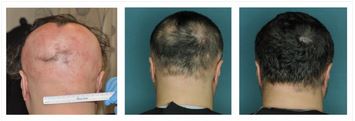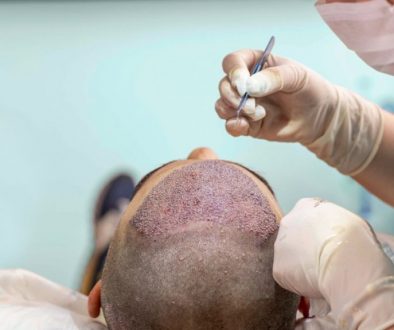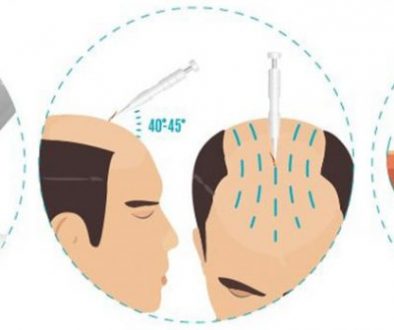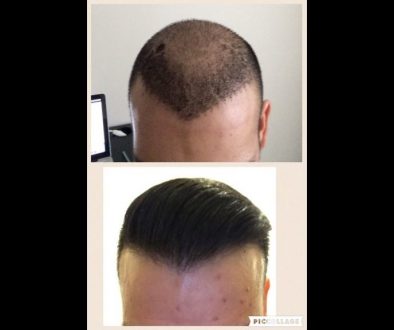Hair Loss News: Drug for Bone Marrow Disease Restores Hair in Patients with Alopecia Areata
 Two months ago, news broke that tofacitinib citrate – a rheumatoid arthritis drug – regrew a full head of hair in a patient suffering from alopecia areata. Now, it appears as if alopecia areata sufferers have more cause for celebration: Earlier today, Columbia University Medical Center announced that ruxolitinib, a drug used to treat a bone marrow disorder called myelofibrosis, restored hair in patients suffering from alopecia areata.
Two months ago, news broke that tofacitinib citrate – a rheumatoid arthritis drug – regrew a full head of hair in a patient suffering from alopecia areata. Now, it appears as if alopecia areata sufferers have more cause for celebration: Earlier today, Columbia University Medical Center announced that ruxolitinib, a drug used to treat a bone marrow disorder called myelofibrosis, restored hair in patients suffering from alopecia areata.
Alopecia areata differs from traditional androgenic alopecia, or male pattern hair loss, in several important ways: first, it is defined as an “autoimmune alopecia” – meaning it occurs when the body’s immune system mistakenly attacks and damages hair follicles; second, it can progress and cause hair loss in regions of the face and body (this is commonly known as alopecia totalis and alopecia universalis); and third, it was, until very recently, extremely difficult to treat and caused disfiguring hair loss in an estimated 6.5 million in the United States alone.
One of these 6.5 million is Dr. Angela Christiano, a researcher in the dermatology department at Columbia University. Dr. Christiano’s team spent years determining the specific cause and underlying pathway behind alopecia areata, and came to the following conclusions: alopecia areata is caused by immune cells in two specific pathways; and both pathways could be blocked by a class of drugs known as JAK inhibitors.
The team tested one of these drugs, ruxolitinib, in mice with alopecia areata and found reversal of baldness and restoration of hair within 12 weeks. The researchers continued with a small trial in human patients suffering from alopecia areata. Participants with “moderate-to-severe” (more than 30% scalp alopecia) enrolled in the trial. After 4-5 months of treatment, the research team found a complete restoration of hair and an absence of immune cells (which cause the alopecia) in the patient’s scalp.
Dr. David Bickers, a fellow Columbia dermatology researcher, notes: “There are few tools in the arsenal for the treatment of alopecia areata that have any demonstrated efficacy. This is a major step forward in improving the standard of care for patients suffering from this devastating disease.”
We agree with Dr. Bickers, and hope both ruxolitinib and tofacitinib help those suffering from alopecia areata. Both drugs are, unfortunately, still very expensive, but further research and development should help make these drugs safe, effective, and readily available.
Stay tuned for further updates!
___________
Blake Bloxham – formerly “Future_HT_Doc”
Editorial Assistant and Forum Co-Moderator for the Hair Transplant Network, the Hair Loss Learning
Center, the Hair Loss Q&A Blog, and the Hair Restoration Forum
Follow our community on Twitter
Watch hair transplant videos on YouTube
Technorati Tags: tofacitinib citrate, alopecia areata, Columbia University, ruxolitinib, myelofibrosis, androgenic alopecia, male pattern hair loss, alopecia totalis, alopecia universalis, JAK inhibitors




November 5, 2014 @ 7:46 pm
Are taking any PAtients for trials,I have a friend that has lost his hair due to alopecia areata,and has lost only wispers of hair